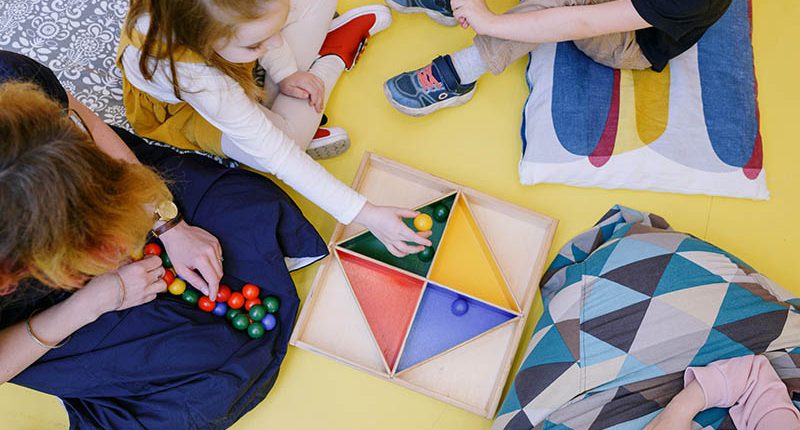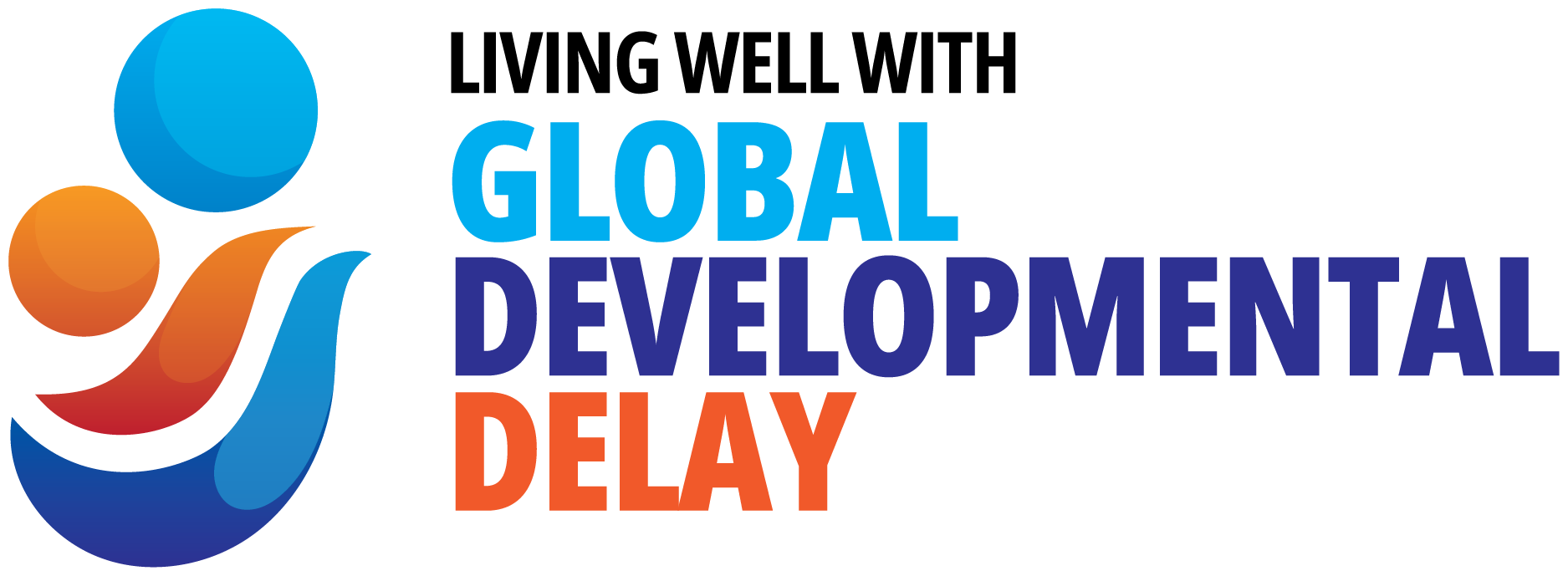Blog
Getting the most out of your child’s early intervention team when they are diagnosed with Global Development Delay
- July 7, 2025
- Posted by: gl0b4dm1n
- Category: Global Developmental Delay

Advice from an Occupational Therapist working in Western Sydney
Over the years I have noted that parents with a child with Global Developmental Delay (GDD) that parents want to make sure that they find the right service for their child but sometimes they are not sure what to look for. Here are some insights I have gained from listening to parents and their feedback.
All children are different
All children with Global Developmental Delay (GDD) are different and need different types of supports and services. You might be told that you need to find speech therapy, physiotherapy, educators, occupational therapy, and behaviour support. It can be hard to know where to start.
It would be great if you could get everything from the right place but sometimes it is actually hard to even find a service provider that is available. You may end up with services from different organisations.
All families are different
It is also important to parents to find services that really suit their child and family. It can help them feel that their child will learn the best that they can. It will help parents feel that they can manage what is involved. All families are different. They have different demands on their time. They have their own schedules and needs.
One way to manage
- the number of services and organisations you are dealing with,
- if you aren’t particularly happy with all the practitioners you are working with or
- if you can’t find a particular type of support
is to focus on getting everyone to work together, to create a team around your child.
Team Around The Child
Parents are learning as they go and coming up with new questions that they need answers to every step of the way. All parents have different experiences. They respond to the diagnosis of Global Developmental Delay differently too. Some are unsure of the next steps, while for some others, it opens doors to access to services.
“We were somewhat relieved when we our son got diagnosed with Global Developmental Delay because we found out what was going on with him. That he actually needs as support. The diagnosis helped us apply for NDIS funds so that we could start his therapies to help him progress”.
(Mother of a 3-yeard old who was recently diagnosed with Global Developmental Delay)
The Team Around the Child Approach has been found not just to be of support for parents but to improve a child’s progress. Teamwork has been found to be one the key areas of what is known as the Best Practice Guidelines for Early Childhood Intervention. You can find out more about these international renowned guidelines at: https://www.eciavic.org.au/documents/item/1503
If you can get your team together you can work out
- what areas you do work on,
- when and
- how often.
If they all know what the plan is for each session, they can all make sure they are keeping an eye on all areas of development and keep everyone up to date. For example parents might start off focussed on one area of their child’s development, like their movement (walking and sitting). By having a different members of your team involved you won’t miss anything and will keep all areas of their development progressing.
Some of the key areas of best practice include:
Family centred and routines-based supports
Being family centred means that you are involved in making the goals for your child and supported to better understand how a Global Developmental Delay effects the way your child learns.
You will want your goals to be based on your priorities for your child. As parents, you know your child the best, spend the most time with him and understand what helps him learn. When you are offered services, you will know what you and your family can manage. Ideally you’ll want to have a choice about where the services should be delivered based on your family’s needs and in the environment best suited for your child’s development. When services are delivered at home, child care/preschool, school etc. the strategies can be implemented as part of your child’s daily routine. Being able to practice skills as part of a routine (and multiple times during the day) has a better chance of supporting a child to learn something new easily.
Collaborative teamwork
Children with Global Developmental Delay will very likely have multiple people involved especially therapists. They are you and your child’s team.
Coordination and good communication and between the team can really help not only your child achieve their goals but also makes it easier for the parent.
Having a Team Around your child is recognised as best in early childhood intervention. The team includes the child, his parents, the professionals working with him, child care/preschool/school, and anyone else that the parents wish to include. It is recommended that one professional acts as the Key Worker (KW) and takes on the role of supporting the family and all service providers to keep connected. The KW model helps parents share information with different providers. Parents who have had the opportunity to be part of a KW model say they feel less stressed and notice improved outcomes for their child living with GDD.
“Team around the child is a great experience especially when the children are so young and you don’t know what therapy your child needs. To have many different therapists within the one service was great for our family as it meant less stress to try and find different therapists. With EarlyEd, it was great having the playgroups with the different therapists in attendance because the therapists can help you to know exactly what services you will need for your child”.
(Susan, who has 2 children aged 8 and 9 years. They has been with involved with early childhood intervention for nearly 7 years)
Are you a parent of a child recently diagnosed with Global Developmental Delay?
You’ll have lots to think about and plan for. As you start out maybe take a step back to think and plan how you want you “Team Around Your Child” work. How are you going to get everyone to work together to help him develop the skills he needs, build his independence so that he is able to participate in mainstream services such as, childcare, school, sports activities etc.
The key elements mentioned above will help get the most out of your child’s early intervention team. A good early intervention team can you manage the multiple relationships you’’ have. Some parents say it can even reduce the sense of isolation and responsibility you have as you get involved in the early intervention.
To find out more about finding and using services and providers go to Services & Support | Global Developmental Delay on the LIVE WELL WITH GLOBAL DEVELOPMENTAL DELAY website.
Namrita, Occupational Therapist, in Early Childhood Intervention Team.
References and note:
- Best practice in childhood intervention: https://www.eciavic.org.au/resources/eci-best-practice-guidelines Note: These best practice guidelines are currently being reviewed so they can be updated. They were first developed with funding from the NDIS, when NDIS first started, to bring together evidence both from Australia and internationally about what we knew was effective early childhood intervention. The new guidelines are supposed to be released in June 2025. We will share this information with you when it is released.
- Quality support for children in the NDIS
A resource for parents and carers. A new guide from NDIS Booklet Quality Support for Children PDF_0 (4).pdf has been released by the NDIS and National Quality and Safeguards Commission
Quality Support for Children | NDIS Quality and Safeguards Commission (ndiscommission.gov.au)
There are other links on this page that might be useful Quality support for children | NDIS to you as well.
The NDIS says that it is “committed to supporting families to access quality supports for their children” and has worked to “create a simple guide for understanding what good practices look like, and providers’ obligations when delivering supports for children.”
Kerry Dominish, partner in the ILC project “Living Well with Global Developmental Delay”
Related Posts:
- How to Use AI to Save You Time and Make Parenting Easier
- Music Therapy and Global Developmental Delay
- Navigating Extra-Curricular Activities for Children with Global Developmental Delay: A parent’s experience
